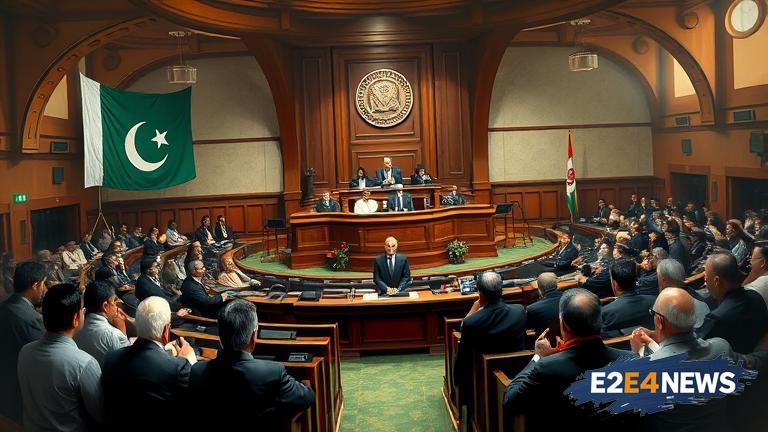The recent debate in the Lok Sabha, the lower house of the Indian Parliament, concerning Operation Sindoor has sparked a diplomatic row between India and Pakistan. Pakistan has vehemently protested the discussion, claiming it interferes with its internal affairs. However, India has defended its stance, asserting that its actions are a justified response to the threat of terrorism. The operation in question is part of India’s broader strategy to combat terror, which it believes is sponsored by Pakistan. India’s government has long maintained that Pakistan provides safe haven to terrorist groups, which then carry out attacks on Indian soil. This stance has been a point of contention between the two nations for decades. The debate in the Lok Sabha highlighted the Indian government’s resolve to take strong action against terrorism, which it sees as a major threat to national security. Pakistan, on the other hand, denies any involvement in sponsoring terrorism and views India’s actions as an attempt to destabilize its government. The international community has called for restraint and dialogue between the two nuclear-armed neighbors. Despite these calls, tensions remain high, with both countries engaging in a war of words. The situation is further complicated by the historical context of the Kashmir dispute, which has been a flashpoint between India and Pakistan since their independence from British colonial rule. India’s decision to abrogate Article 370 of its constitution, which granted special status to the state of Jammu and Kashmir, has also been a point of contention. Pakistan sees this move as a violation of international law and an attempt to alter the demographic makeup of the region. The United Nations has urged both countries to respect the Line of Control, the de facto border in Kashmir, and to seek a peaceful resolution to their differences. However, with both nations holding firm to their positions, a resolution seems distant. The impact of these tensions is not limited to the political sphere; it also affects the economic and social fabric of the region. Trade between India and Pakistan has been severely impacted, and there are concerns about the humanitarian situation in Kashmir. The international community is watching the situation closely, aware of the potential for escalation into a full-scale conflict. In such a scenario, the consequences would be catastrophic, not just for the region but for global stability. Therefore, it is imperative that both India and Pakistan engage in meaningful dialogue to address their differences and work towards a peaceful resolution. The path to peace will require compromise and a willingness to listen to each other’s concerns. Until then, the region will remain on edge, with the threat of conflict looming large. The world hopes that wisdom will prevail, and India and Pakistan will choose the path of peace and cooperation. The future of the region and its people depends on it. In conclusion, the debate over Operation Sindoor has highlighted the deep-seated tensions between India and Pakistan, which are rooted in historical, political, and ideological differences. Finding a way to resolve these differences peacefully is essential for the stability and prosperity of the region.
